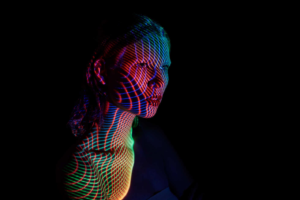Transcutaneous Auricular Vagal Nerve Stimulation for Intractable Epilepsy
Kristen Sparrow • December 03, 2018


3 and 6 months of TVNS seizure frequency and EEG profiles improved decisively. Unfortunately, I have no details on the specifics of treatment. This corroborates the anecdotal evidence in this patient. He does not have epilepsy, but has been helped with mood and arrhythmia with TAVNS.
Efficacy and Safety of Treatment with Transcutaneous Vagus Nerve Stimulation in 17 Patients with Refractory Epilepsy Evaluated by Electroencephalogram, Seizure Frequency, and Quality of Life.
Abstract
BACKGROUND This study aimed to investigate the efficacy and safety of treatment with transcutaneous vagus nerve stimulation (tVNS) for patients with refractory epilepsy by evaluation of the frequency of seizures, electroencephalogram (EEG) changes, and quality of life on follow-up at three months and six months. MATERIAL AND METHODS EEG evaluation followed baseline evaluation with EEG at three months and six months following tVNS treatment. The frequency of seizures was recorded during the six-month study period. Before and after tVNS treatment, patients completed the Self-Rating Anxiety Scale (SAS), the Self-Rating Depression Scale (SDS), the Liverpool Seizure Severity Scale (LSSS), the Quality of Life in Epilepsy Inventory (QOLIE-31), and the Pittsburg Sleep Quality Index (PSQI). RESULTS Seventeen patients completed six months of tVNS treatment. Following three months of tVNS therapy, the frequency of epileptic seizures decreased in 13/17 subjects, with an average reduced seizure rate of 31.3%. Following six months of tVNS treatment, the frequency of epileptic seizures decreased in 16/17 subjects, with an average reduced seizure rate of 64.4%. There were 14/17 cases with abnormal EEG at baseline; 2/17 patients had improved EEGs by three months, and 10/17 patients had improved EEGs by six months. During the study period, there were no adverse events associated with tVNS treatment, but the effects on sleep were inconclusive. CONCLUSIONS This preliminary study showed that tVNS was an effective and safe adjuvant treatment for refractory epilepsy that reduced seizure frequency and reduced abnormal EEG changes following clinical improvement.

